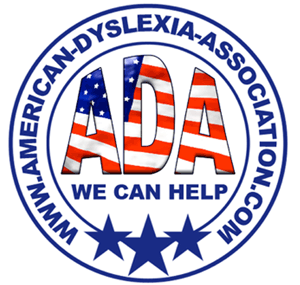Assessing the Need for a Unique Reading App
A Letter and Survey for Parents
My name is Timothy Winey. Over a period of 8 years, I developed a reading intervention for struggling 2nd Graders. It is well-established that if children are not reading fluently with comprehension by the end of 3rd grade, they have only a 20% chance of reading at grade level at the end of 9th grade, and that’s with intensive remediation. The National Reading Panel, a collection of the top experts in reading science, was convened to address the ongoing tragedy of poor English literacy. There is surprisingly little disagreement among top experts as to what constitutes true scientific-based reading, in short, what really works. Sadly, the recommendations of experts don’t always translate to classroom success, and my experience with 1st graders entering my classroom was no different. While so-called ‘traditional phonics’ fall somewhat short of the National Reading Panel recommendations, they are still the closest thing to a reliable approach to reading instruction.
My discovery revolves around disproving an untested assumption about so-called ‘controlled texts’ used in traditional phonics. Basically, since there is more than one way to spell many English sounds, traditional phonics intentionally limits the variety of spelling variations early readers are exposed to. The logic behind these ‘controlled texts’ is to give children time to learn some, but not all, spellings for a given English sound so as to limit confusion. This approach, while logical on its face, turns out to be surprisingly inefficient. The reason for this is straightforward; every time a new spelling for a given sound is introduced, the child must incorporate this new spelling into his/her existing schema.
This constant need for ‘updating’ the child’s internal spelling pattern ‘database’ turns out to be costly, diverting much needed cognitive resources from other vital tasks. Indeed, every time a new spelling for a given sound is introduced, such as the spelling of the sound ‘ough’ in the word drought for the ‘ow’ sound as in ‘how,’ the child must not only incorporate this new spelling, but also assign a probability ‘guess’ as to how often this spelling is likely to occur and in what position in what kind of words. This is like asking a young child to solve a mystery with missing clues. Some traditional phonics methods are better than others insofar as they introduce the most common spellings first and the rarest last, but this is still sending a boy to do a man’s job.
So what lies at the heart of poor English literacy? I can answer this question in just two words, ‘overlap’ and ‘variation.’ ‘Variation’ is just what it implies, namely, variations in spelling the same English sound. As it turns out, children have no difficulty accepting that there is more than one way to spell an English sound. The ‘o-e’ sound as in the word hoe and the ‘o-e’ sound in the word ‘no’ are obviously spelled differently. Again, children accept this readily. What drives children literally insane is ‘overlap,’ using the same spelling for two different sounds (the letter ‘o’ to spell the ‘o-e’ sound in the word ‘no’ and then using that same letter to spell the ‘o’ sound in the word ‘not.’ This is where the English ‘spelling code’ logic falls apart for so many children. Curiously, intelligence has absolutely nothing to do with this confusion. High IQ children are just as likely to struggle with this spelling code ambiguity as average or even below average IQ students. It is this overlap and variation dilemma that my approach solves. I realize this is a bold claim, but not one without support. According to the top experts in reading science, the gold standard for predicting reading fluency and comprehension, is the ability of students to read what are termed ‘context-free pseudowords.’ These are made up words that conform to English spelling conventions but that are not in the dictionary.
In short, they are made up English-sounding words that students cannot memorize by sight. If readers can fluently decode pseudowords, they are, by definition, a fluent reader, because the very act of reading lists of pseudowords correctly demonstrates that the variation and overlap problem is resolved. In short, accurate pseudoword reading is the operational definition of reading. If you can read pseudowords, you can read anything.
Now, with advances in text to speech engines (computers reading aloud) and voice to text technology (dictation software), my method can be made accessible on handheld devices. In order to better assess the need for such a product, we have prepared for parents a short survey below.
Sincerely,
Timothy Winey
————————————–
Dear friends:
I am involved in an important project to digitize a method for teaching struggling readers (Dyslexia). Our goal is to make this application available to struggling readers of all ages. Poor literacy costs America more than the wars on drugs, poverty, cancer, crime and terrorism combined, not to mention the incalculable human misery. The true functional illiteracy rate in America is much higher than most would believe. Below, I have a short survey for parents. If you know any parents who teach reading at home, could you please forward this short survey to them? They can email their answers to [email protected]. All emailed responses will be anonymized.
Are you home-schooling your child exclusively at home? Yes/no
If you are not home-schooling exclusively, how much home learning do you do per week on average? (N/A for full time home-schooling parents)
How much time do you spend on reading/writing/spelling vs. other subjects?
What tools/resources do you use for at-home reading learning?
What do you like about those tools/resources?
What don’t you like about them?
What are the biggest challenges you face with your child/children when teaching reading at home?
Does your child struggle with reading?
Does your child struggle with any other subjects? If yes, please list them.
Also, please describe what role, if any, you feel, poor reading plays in his/her struggle with the above-listed subject/s.
Category: Apps/Accessories, Dyslexia










